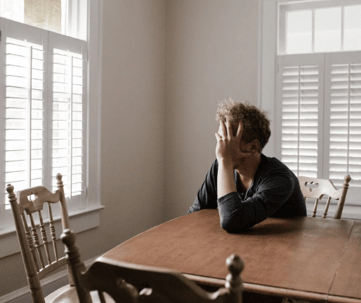No doubt, the coronavirus disease (COVID-19) is highly stressful for people. The anxiety and fear of this disease are causing strong emotions in humans.
Anxiety is a normal reaction to the vulnerable situation - but taking on too much stress can lead to serious health issues. Sometimes, anxiety can also cause people to feel denial, in turn not accepting the situation as serious. In such situations, people may start avoiding recommendations from health authorities.
Every individual is managing COVID-19 anxiety differently: Some important things to keep in consideration are:
- Limit your outdoor activity unless it's a necessity: try to involve yourself in indoor activities
- Confide in others about your feelings on isolation and the COVID-19 situation
- Give yourself a break from continuous breaking news, news stories, upcoming statuses and social media updates. Exposing yourself to great amounts of content relating to epidemic news may increase your feelings of stress and anxiety
- Take care of yourself by taking deep breaths, exercising, eating a balanced diet and keeping a healthy sleep cycle
- Try to keep yourself in a regular routine
- Explore self-care activities like mindfulness, art, yoga, meditation and painting
- Avoid hand-shakes and unnecessary interaction with others
Adults
In adults, one of the ways to handle the anxiety of COVID-19 is to understand the severity of the risk to oneself and the close ones. Stick to consuming and sharing accurate information about coronavirus which can help others to feel less anxious about the disease. 
Teens
Parents who are taking care of the emotional comfort of young children and teens should take actions to ease feelings of stress. When parents deal with the anxiety of coronavirus calmly and logically, it is more likely for children to feel more at ease.
Not every child will act and respond to the situation the same way. Some might act rightly to the situation and some may feel difficult to act appropriately - these reactions depend on their age, experiences and reactions to cope with stress. This may include excessive worry, difficulty paying, headaches or body pains, unhealthy eating, changed sleeping patterns or using drugs or alcohol.
Help others in need - it will also help you to ease anxiety
Check in regularly with friends, neighbors and relatives if they need anything or need to chat. By helping others and making an effort to share experiences, feelings of unease or anxiety may be eased.
Finally:
It’s true that COVID-19 is a serious disease - and at the moment, the whole world is trying hard to cope with the disease and its impacts on the way we live. Practice good hygiene, stay home, exercise regularly, stick to a balanced diet and stay connected to ensure you are balancing your mental and physical health.